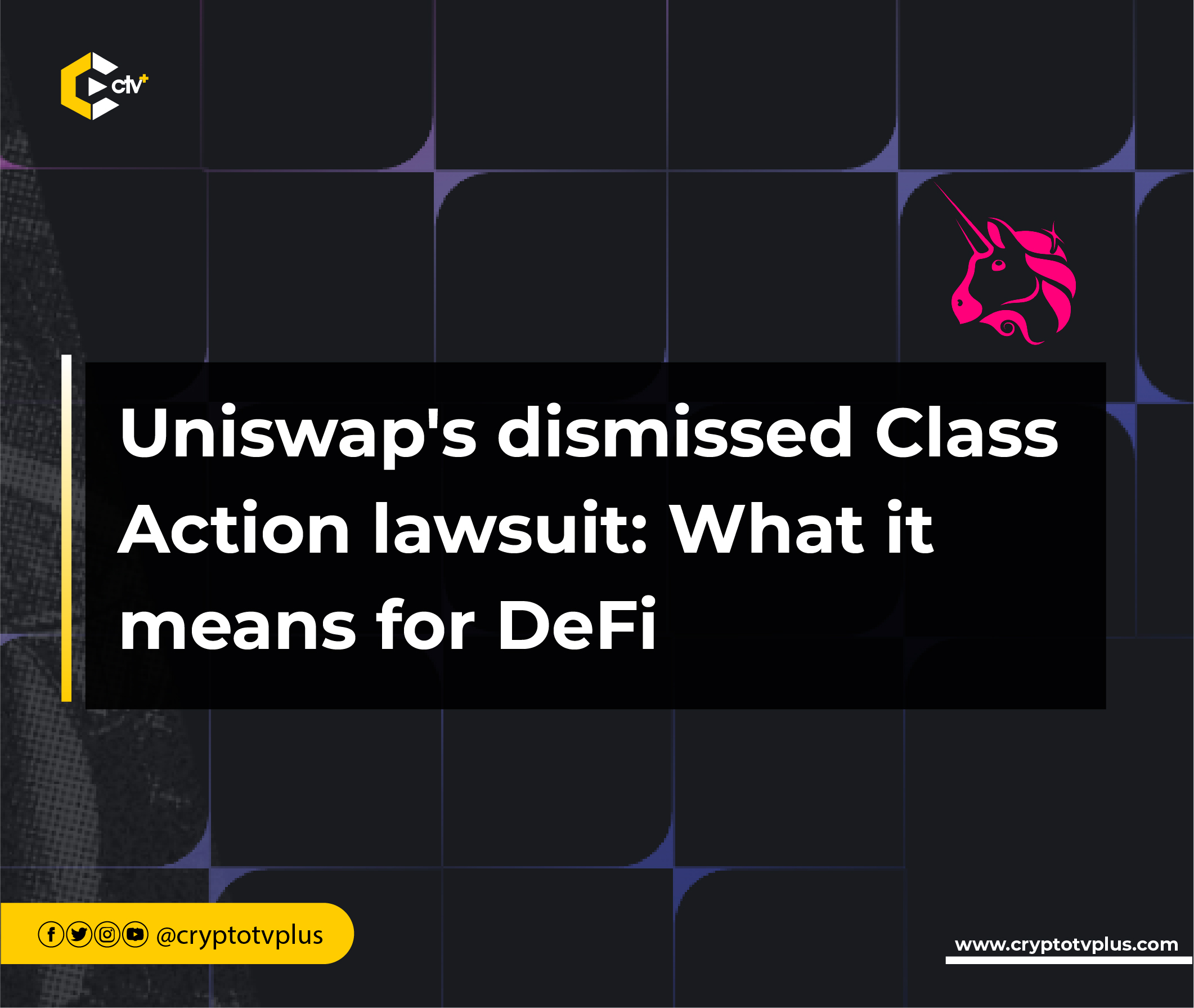Education
Uniswap’s dismissed Class Action lawsuit: What it means for DeFi

In a decision on August 29, 2023, U.S. District Judge Katherine Polk Failla of the Southern District of New York dismissed a class-action lawsuit against Uniswap Labs, the developers behind the popular decentralised exchange; Uniswap.
The lawsuit alleged that Uniswap, and its associates should be held liable for damages caused by fraudulent tokens traded on the platform. While Judge Failla acknowledged the financial losses suffered by the plaintiffs, her ruling sets an essential legal precedent in the evolving world of decentralized finance (DeFi).
Let’s dive into the details of this significant case and explore the broader implications for the DeFi industry.
The Uniswap lawsuit
The lawsuit, initially filed by trader Nessa Risley in April, accused Uniswap and its associates of violating securities laws by operating as an unregistered broker and dealer and offering unregistered securities. The fraudulent tokens in question, including Matrix Samurai (MXS), Rocket Bunny (BUNNY), and Alphawolf Finance (AWF), purportedly burned traders. However, Judge Failla found that the plaintiffs faced a unique challenge due to the decentralized nature of DeFi protocols.
One of the key arguments in the case was whether Uniswap Labs should be held accountable for the actions of third-party token issuers. Judge Failla highlighted that the decentralized nature of the Uniswap protocol, built on smart contracts, lacks a centralized ownership structure. In essence, this means that Uniswap developers cannot control or regulate the actions of token issuers.
Decentralization as a defence?
Judge Failla made it clear that, in a more transparent world, plaintiffs would seek redress directly from the fraudulent token issuers. However, due to the pseudo-anonymous nature of these issuers, this was often impossible. Therefore, plaintiffs argued that Uniswap Labs facilitated the trades involving these tokens, which ultimately resulted in financial losses.
The sooner the general public understands all the legitimate use cases for a given protocol, the sooner the protocol will be protected. Let’s take for instance, what happened to Napster in the late 1990s. Napster was one of the earliest peer-to-peer file-sharing platforms. It allowed users to share and download music files directly from one another, bypassing traditional distribution channels. Napster went on to have a lot of legal battles with the music industry because of the disruptive power of its technology e.g. A&M Records, Inc. v. Napster, Inc. (2000).
In a similar vein, the rise of DeFi is a disruptive force in the financial sector. Much like Napster challenged the music industry’s established order, DeFi challenges traditional finance.
Judge Failla’s ruling firmly establishes a legal precedent in the DeFi space, stating that U.S.-based open-source developers should not be held liable for the actions of third parties on the decentralized protocols they create.
The impact on the web3 sector
While this ruling is a significant victory for Uniswap Labs and DeFi as a whole, it does not mean that developers can expect blanket protection from third-party claims.
As noted by Stephen Palley, a partner at the Brown Rudnick law firm, the outcome of such cases will depend on the specific facts and circumstances. Ultimately, legislation may need to address these issues as the DeFi sector continues to grow.
Interestingly, Judge Failla is a former prosecutor who was appointed to the bench by President Obama and is also overseeing the landmark case between Coinbase and the U.S. Securities and Exchange Commission (SEC). The SEC has accused Coinbase of facilitating trading in unlicensed securities. This case has drawn parallels with the Uniswap lawsuit, as both involve the question of whether the platforms should be held responsible for the actions of token issuers.
Cryptocurrencies and securities laws
Another noteworthy aspect of Judge Failla’s ruling is her classification of Ether (ETH) and Bitcoin (BTC) as “crypto commodities.” This distinction played a role in her decision to dismiss the case against Uniswap, as it raised questions about whether the Exchange Act applied to Uniswap’s token sales. This classification, however, does not represent a definitive legal determination of Ether’s status in the U.S. It aligns with the ongoing debate over how cryptocurrencies should be categorized within the regulatory landscape.
Judge Failla’s decision acknowledges the lack of clarity in how securities laws apply to DeFi protocols. While DeFi transactions raise concerns, the legal framework is still evolving, and regulators may eventually address this grey area. This ruling accentuates the need for comprehensive regulation in the DeFi sector, as it remains a critical focal point for both regulators and innovators.
Conclusion
Judge Katherine Polk Failla’s dismissal of the class-action lawsuit against Uniswap Labs represents a significant milestone in the legal landscape of DeFi. It advances our knowledge of how protocols negotiate complex regulatory landscapes. It reaffirms the notion that creating a procedure that complies with the law does not constitute an admission of guilt but rather emphasizes an accountable method of compliance.
I think the idea of consciously avoiding regulatory confrontation is a testimonial to a dedication to lawful behaviour that should be welcomed in conversations regarding crypto regulation. It serves as a helpful reminder that negotiating the regulatory environment is a respectable task that exemplifies a proactive approach to compliance.












